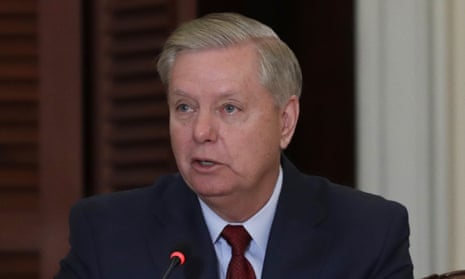US senators have proposed a new law which would make key legal protections that online platforms rely on contingent on those platforms adopting specific practices related to privacy and the prevention of child sexual exploitation.
The act has widely been seen as an opening salvo in a renewed war on end-to-end encryption, with the US justice department (DoJ) regularly criticising technology companies for creating products, such as iMessage and WhatsApp, which cannot be intercepted by law enforcement.
Proposing what has been called the Earn It Act, a backronym for “Eliminating Abusive and Rampant Neglect of Interactive Technologies”, the new bill was introduced by a bipartisan collection of senators on Thursday.
It proposes an amendment to section 230 of the Communications Decency Act, described as “the 26 words that created the internet” in a recent book of that name, so that it only applies to platforms certified as following a set of best practices to prevent child abuse and exploitation. Section 230 indemnifies internet platforms against being viewed as the publishers of the content they host; before it was passed in 1996, websites ran the risk of taking full legal liability for everything they hosted unless they performed no moderation at all.
The Republican Lindsey Graham, one of the four primary sponsors of the bill, said: “I appreciate my colleagues working with me on this bill to ensure tech companies are using best business practices to prevent child exploitation online. This bill is a major first step. For the first time, you will have to earn blanket liability protection when it comes to protecting minors. Our goal is to do this in a balanced way that doesn’t overly inhibit innovation, but forcibly deals with child exploitation.”
The Democrat Dianne Feinstein, one of California’s two senators, and thus Silicon Valley’s representative in the Senate, added: “Technological advances have allowed the online exploitation of children to become much, much worse over recent years. Companies must do more to combat this growing problem on their online platforms. Our bill would allow individuals to sue tech companies that don’t take proper steps to prevent online child exploitation, and it’s an important step to protect the most vulnerable among us.”
The bill has created unease. Emma Llansó of the Centre for Democracy and Technology, a nonprofit organisation which campaigns “to preserve the unique nature of the internet”, said it “would give government officials unprecedented powers to craft de facto regulations for online speech. Online service providers would almost certainly err on the side of caution and take down anything – including a lot of lawful, constitutionally protected speech – that the attorney general might not like.”
The nature of the “best practices” that companies would be required to follow is left unspecified in the legislation, instead being placed under the auspices of a national commission on online child sexual exploitation prevention. But the outline was suggested by a second announcement on Thursday, by the US DoJ and the wider Five Eyes surveillance coalition, which includes the governments of the UK, Canada, Australia and New Zealand.
That group revealed a set of “voluntary principles to counter online child sexual exploitation and abuse”, 11 principles that included companies “adopting enhanced safety measures with the aim of protecting children, in particular from peers or adults seeking to engage in harmful sexual activity with children” and “seeking to identify and combat the dissemination of new child sexual abuse material via their platforms and services”.
The UK’s Internet Watch Foundation, a charity responsible for finding and removing images of child sexual abuse from the internet, welcomed the principles. Its chief executive, Susie Hargreaves, said she hoped they would “encourage more companies to follow the lead of our members and step up and do the right thing for victims of child sexual abuse”.










